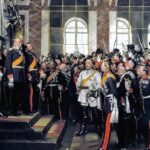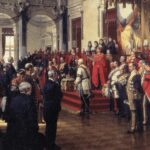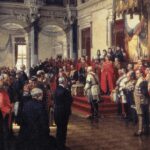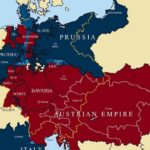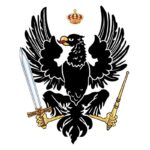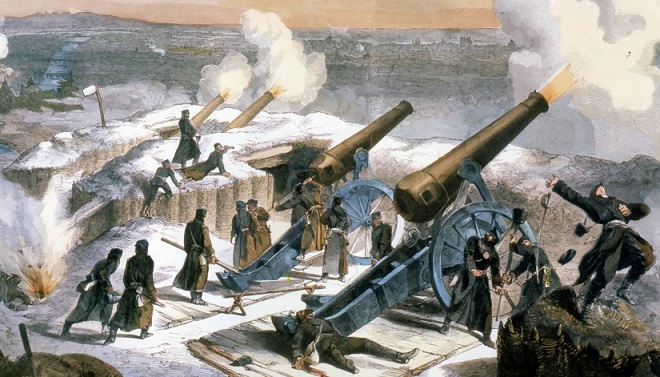
The Franco-Prussian War of 1870–71 was a short, brutal, and transformational conflict that reshaped Europe forever. It toppled an empire, birthed another, and brought to a climax the decades-long process of German unification. What began as a dispute over royal succession escalated into a continent-shifting war, driven by rival ambitions and clever political manipulation. For France, it was a disaster. For Prussia and its allies, it was the final step toward building a powerful German Empire. This article explores how the war started, what unfolded on the battlefield, and why it remains one of the most significant events in modern European history.
Historical Background and Rising Tensions
After Prussia’s victory in the Austro-Prussian War (1866), it became clear that it was on a path toward leading German unification. The North German Confederation was formed, excluding Austria, but several southern German states remained independent. Prussian Prime Minister Otto von Bismarck knew that only a shared enemy could compel these holdouts to join the unification movement. That enemy was France.
France, under Napoleon III, was increasingly anxious about Prussian dominance. When a distant Hohenzollern prince was offered the Spanish throne, France feared encirclement by a Prussian-Spanish alliance. Though the prince withdrew, France demanded permanent guarantees. This led to the infamous Ems Dispatch, a telegram edited by Bismarck to make it appear as if France had been insulted. It was bait – and France took it. Napoleon III declared war on Prussia in July 1870.
Military Campaigns and Key Battles
At the outset, France believed it could easily defeat Prussia. But it was Prussia that had the superior planning, rail systems, and coordination among German states. The German armies moved with speed and unity, something the fragmented French forces could not match.
Battle of Wissembourg and Early Defeats
German forces quickly moved into Alsace, winning early victories like the Battle of Wissembourg and Spicheren. These engagements forced the French into retreat and gave the Germans momentum.
The Battle of Sedan
On September 1, 1870, everything changed at the Battle of Sedan. Prussian and allied German forces surrounded the French army, capturing Napoleon III and more than 100,000 troops. The French Second Empire collapsed almost immediately. A new French Republic was declared in Paris, which refused to surrender and vowed to fight on.
Siege of Paris
German troops marched to Paris and laid siege to the city from September 1870 to January 1871. The Siege of Paris was brutal – food shortages, civilian suffering, and cold winter months made life unbearable. Despite desperate efforts to resist, the city surrendered on January 28, 1871.
The Proclamation of the German Empire
While Paris was still under siege, the leaders of the German states gathered in the Hall of Mirrors at the Palace of Versailles. On January 18, 1871, King Wilhelm I of Prussia was declared Emperor of the German Empire (Kaiser Wilhelm I).
It was a masterstroke of symbolism – the birth of the German Empire was proclaimed in the same room where French monarchs once celebrated their power. For Bismarck, it was the final piece in the puzzle of unification. The southern states joined the empire, creating a new, federated German state led by Prussia.
Treaty of Frankfurt and French Consequences
In May 1871, the Treaty of Frankfurt officially ended the war. France was forced to pay five billion francs in reparations and cede the territories of Alsace and Lorraine to Germany. These regions were rich in industry and deeply symbolic. Their loss humiliated France and became a national wound that influenced its foreign policy for decades.
The economic burden and territorial loss stirred nationalist resentment in France. It also laid the foundation for long-term animosity between the two nations – a feud that would erupt again in World War I and World War II.
Political and Cultural Impact
The war’s political impact was immediate and immense. Germany emerged as a united empire – a new great power in Europe with the military might and industrial capacity to rival Britain and France. Bismarck became a national hero, and the German people rallied around a newfound sense of unity and pride.
The conflict also left deep scars. In France, the collapse of the Second Empire led to internal unrest, culminating in the brief but bloody Paris Commune in 1871. In Germany, nationalism surged, along with militarism and confidence in authoritarian governance.
Culturally, the war became enshrined in national memory. German schools taught it as the war of national birth. Monuments to the fallen and statues of Bismarck appeared across the new empire. The victories at Sedan and the symbolism of Versailles were glorified in art and literature.
Strategic and Military Lessons
Militarily, the war showcased the effectiveness of modern infrastructure – railways, telegraphs, and mass conscription gave the Germans a decisive edge. The coordination between German states under a single command structure proved vastly superior to France’s outdated and fractured system.
The German model of warfare became influential across Europe. Other nations began reforming their armies based on what they observed in the Franco-Prussian conflict. This arms race and strategic imitation played a major role in the buildup to World War I.
Long-Term Legacy
The Franco-Prussian War reshaped the continent. It completed the unification of Germany, changed the balance of power in Europe, and triggered a wave of nationalist fervor. But it also sowed the seeds of future conflicts.
France never forgot the loss of Alsace and Lorraine. German military pride morphed into a sense of superiority. The diplomatic networks that followed – Bismarck’s alliance systems – were designed to isolate France and maintain peace, but they ultimately created an environment ripe for global war.
The Franco-Prussian War was more than a conflict between two nations. It was a defining moment in European history. It ended the age of fragmented German states and ushered in a unified empire that would dominate the continent for decades. It marked the fall of one empire and the rise of another. And it set the tone for the fierce rivalries and alliances that would define the 20th century.
To understand the roots of modern Europe – and especially the legacy of German power – one must begin in 1870, with the clash between France and Prussia.
Explore more:
